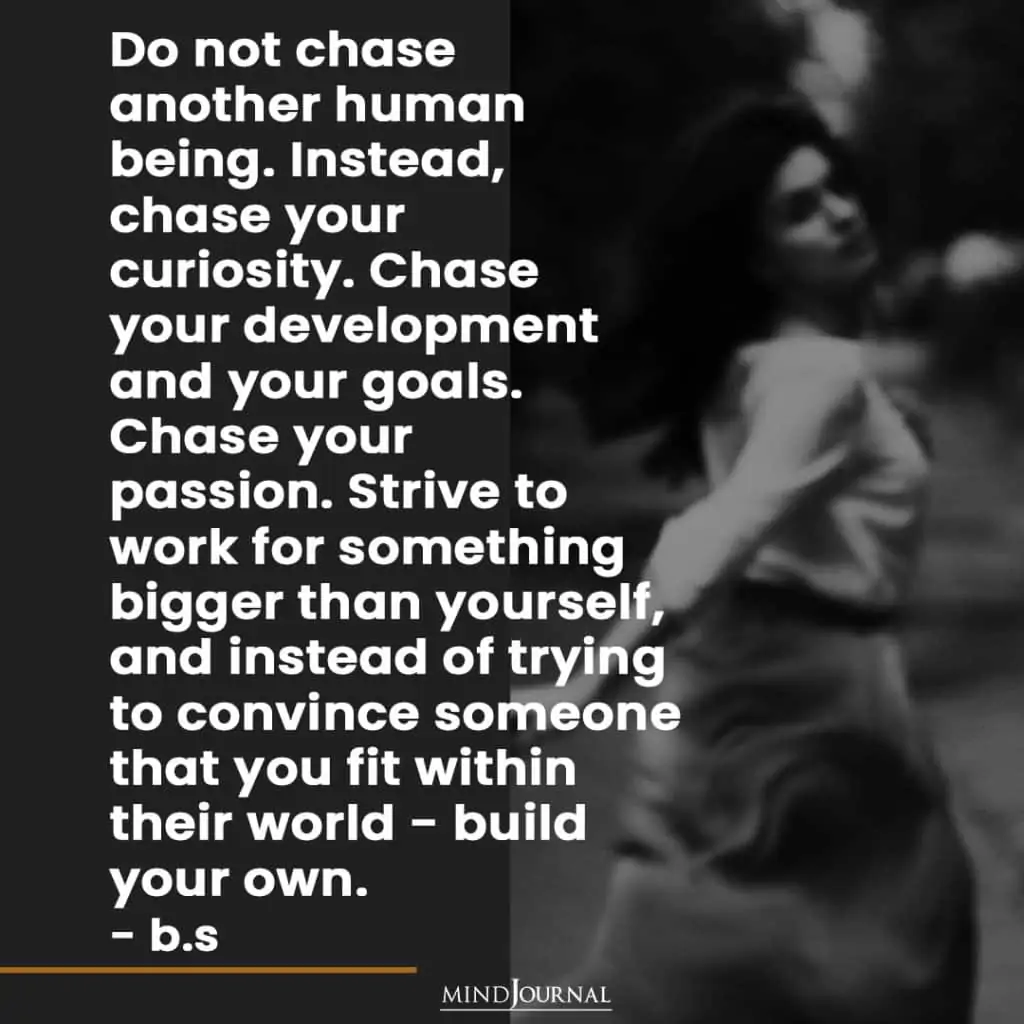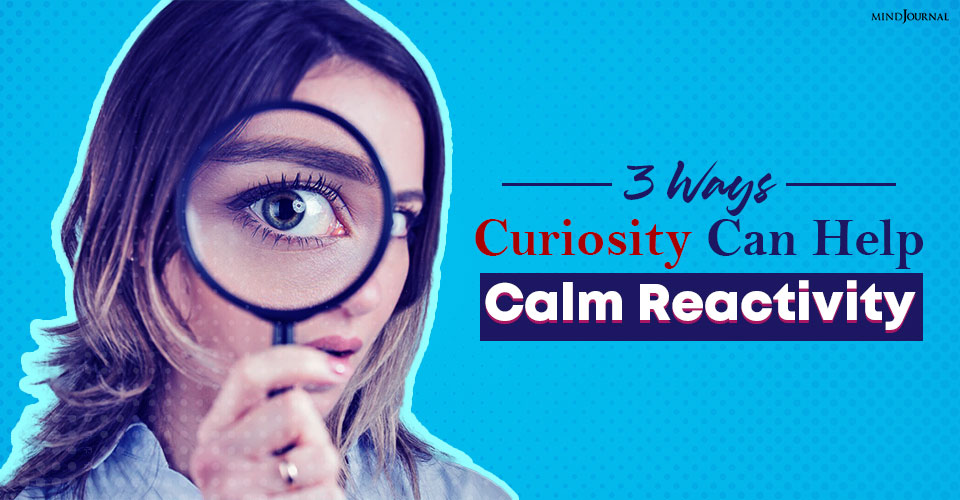If you are highly reactive and don’t know how to calm down, then it’s time to nurture curiosity. This essential element of mindfulness can help break unhelpful patterns. Read on to know why and how curiosity can help calm reactivity.
KEY POINTS
- Curiosity is an important element of mindfulness that can help people take a half-step back to observe what is unfolding from a neutral place.
- Bringing curiosity to thoughts, emotions, and behaviors can help people step out of reactivity and have greater choice over their responses.
- Curiosity can be cultivated and it can be practiced throughout the day during moments of irritation, frustration, or upset.
Why you need to embrace curiosity?
On a recent night, I was just starting to drift off into that sweet, relaxed, beautiful place of letting go deeply into sleep, when some unexpected series of sounds (coming from my husband’s phone) jolted me from my sleep, causing my heart to race. I knew my husband didn’t mean to wake me up, but nonetheless, reactivity started getting the best of me as I tried to fall back to sleep.
I became irritated, frustrated and started spinning narratives in my head about how I had gotten disturbed out of my sleep and now I may not get the sleep I needed, and now I can’t fall back to sleep, and what if I feel exhausted tomorrow, and… Of course, all of these thoughts caused my heart to beat more quickly and kept me more alert and awake.
And then I remembered about curiosity. This is a quality I have been cultivating in my meditation practice, (but one you can strengthen even if you don’t formally meditate). The observing part of my mind started getting curious about what was going on. “Isn’t this interesting that my body has this built-in alarm (my fight or flight response, wired in from evolution) that responds to unfamiliar noises to try and protect me from harm.
Read Why Your Emotions Are Not “Things” In Your Brain
Isn’t this interesting that my mind is making up a whole story about this brief moment of my racing heart, and how each thought tumbles into the next, getting me increasingly agitated. How curious that my heart rate increases when I think these thoughts, and these mental constructs themselves keep my ‘fight or flight response,’ my alarm system going.”

By just getting curious I was able to take a half-step back from what was happening. Instead of being caught in my own thoughts and reactivity, I started to notice them from a slightly different vantage point. From this place, I had a bit more space to choose — in this case, to calm myself by reminding myself this was a “false alarm,” not a real threat (put hand on heart, slow exhalations, tell myself “safe to relax”), and to focus on how supportive my husband is (rather than to be frustrated at him for waking me accidentally).
Curiosity is a key element of mindfulness meditation practice that allows for the nonjudgmental, observing self to notice with open attention and awareness what is arising. Curiosity allows us to turn toward experiences as if we are taking a half-step back and looking with friendly eyes at what is unfolding in the moment so that we are neither pushing it away nor getting swept away by it.
The good news is, whether you meditate or not, we already know how to be curious. This is a natural quality that is wired into our biology, and one you can observe even in young babies as they explore the environment at their fingertips. As you strengthen curiosity as you move through your day (think of strengthening muscles when you lift weights repeatedly and consistently), it becomes a helpful inner resource that you can increasingly draw on.
Read How to Stop Taking Things Personally: 8 Steps
How curiosity can help with reactivity
Here are three ways curiosity can help you. Note that you can bring curiosity to feelings, thoughts, and behaviors, and each of these can help unhook from automatic reactivity.
1. Curiosity of emotions helps you shift your vantage point so that you are observing from a more neutral place rather than being caught in reactivity.
Suggestions to do this:
- Be curious about what emotions are present (name them) and notice how they show up in your body as physical sensations.
- Bring some curiosity to see if there are any other hidden emotions present.
- Wonder to yourself if these emotions are tied specifically to this situation, or if they remind you of other times you felt this way that may not have to do entirely with this situation.
- Ask yourself what this emotion might want or need if it could talk.
In order to illustrate this, imagine a situation in which you ask a family member to do an important thing for you, and you discover that they didn’t do what you asked. Here is how you might bring curiosity to your emotions:
I notice anger and irritation are present. I’m really upset that this thing wasn’t done as I asked and I can feel a lot of tension in my body, especially my chest. Hmm, this is interesting — as I pay attention to this anger I can sense hurt underneath. It reminds me of a current situation at work I’m dealing with where I feel that my needs have been overlooked and dismissed. I think I just want to feel listened to and have my voice heard.
Read How Rigid Thinking And Rumination Undermines Your Health And Life
2. Curiosity of thoughts interrupts automatic and ruminating thinking and helps you notice thoughts rather than get entangled in your own thinking.
Suggestions to do this:
- Imagine you could watch thoughts in your mind the way you might observe moving vehicles of different colors, shapes and sizes passing by.
- Be interested in any ways your mind is concocting a story or interpretation about what is happening.
- Notice that the facts of a present moment situation may be different from the interpretations the mind creates.
Continuing with the example from above, here is how you might bring curiosity to your thoughts:
I notice that I’m thinking to myself that I can’t believe that you didn’t do this for me and I’m clearly unimportant. I see that there is a narrative in my mind that “you never do what I ask and you obviously don’t care about me or my needs.” Hmm… I can see this really isn’t true. There might be many reasons why you didn’t do this thing I asked of you and there are many times you try to be helpful.
Read 10 Signs Of Self-Hatred And How To Overcome
3. Curiosity of behaviors interrupts automatic reactivity and creates a space between the reacting self and the observing self so that you can see greater choices available to you.
Suggestions to do this:
- Bring curiosity to how you are inclined to act in this moment.
- Trying not to judge yourself, just notice with curiosity and kind attention how this behavior might make you feel. Be curious about the consequences of a particular behavior versus other behaviors that might be available.
Once again, using the above example, here is how you might bring curiosity to your behavior choices:
I notice that I am ready to yell and scream and start a fight. When I do that, it gets me more agitated and usually doesn’t end up helping me feel any better. It also isn’t the best way to have my voice heard. I wonder what would happen if I told you how I was feeling instead, after I am a little calmer.
If you want to practice strengthening your curiosity muscle to help you with reactivity, look for times during the day when you feel moments of irritation, frustration, or upset (take care not to pick anything too emotionally charged, especially if you are new to this).
Use the suggestions above to guide you to bring greater curiosity to your emotions, thoughts, and behaviors in the moment. Doing this, especially in combination with practicing mindfulness meditation, can help to begin to loosen the grip of automatic reactivity and create the space for greater choices.
Written by: Beth Kurland, Ph.D Originally appeared on: Psychology Today Republished with permission









Leave a Reply
You must be logged in to post a comment.